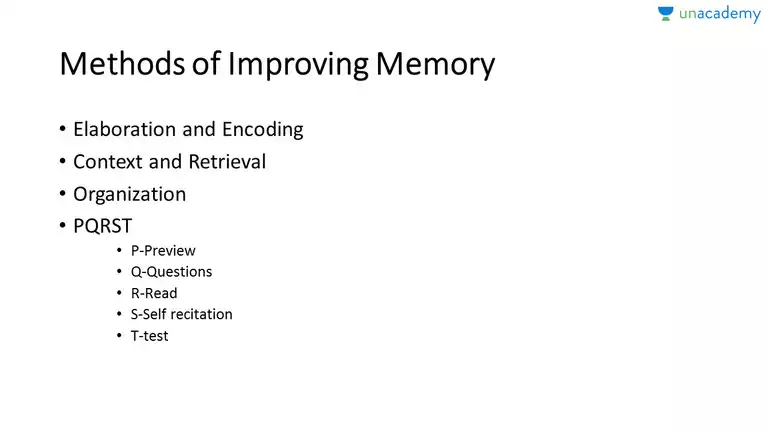Forgetting, or the inability to recall previously learned information, is a normal and necessary process that occurs in the human brain. There are several theories that attempt to explain why forgetting occurs and how it can be influenced.
One theory of forgetting is known as decay theory. According to this theory, forgetting occurs because of a loss of the physical trace of the memory over time. Essentially, the memory trace, or the neural connections that represent the memory, becomes weaker and eventually disappears if it is not used or reinforced. This can occur due to a lack of attention or rehearsal of the information, leading to a failure to encode the memory properly in the first place.
Another theory of forgetting is known as interference theory. This theory suggests that forgetting occurs when new information competes with or disrupts the retrieval of previously learned information. There are two types of interference that can occur: proactive interference, in which previously learned information hinders the recall of new information, and retroactive interference, in which new information hinders the recall of previously learned information. This interference can occur due to the similarity between the old and new information, leading to confusion and difficulty in recalling the appropriate information.
A third theory of forgetting is known as motivated forgetting, or the idea that people may intentionally forget certain information due to personal or emotional reasons. This can occur through a process called repression, in which unpleasant or traumatic memories are pushed out of conscious awareness to protect the individual from emotional distress. Motivated forgetting can also occur due to a lack of motivation or interest in the information, leading to a failure to encode the memory properly.
There are also several factors that can influence the rate of forgetting, including the amount of attention paid to the information, the level of emotional significance of the information, and the amount of rehearsal or review of the information. By understanding the various theories of forgetting and the factors that can influence it, people can take steps to improve their memory and retention of information.
Theories of Forgetting

Key study: Postman 1960 Aim: To investigate how retroactive interference affects learning. Minami and Dallenbach 1946 carried out a study on cockroaches, which learned to avoid a dark box. Trace decay theory focuses on time and the limited duration of short term memory. The content of that argument used to be encoded and stored in your memory. Once it is consolidated, memory is moved from short term to a more permanent long-term storage, becoming much more resistant to forgetting. However, if someone reminds you that you also went to see a relative who lived there, it may trigger the retrieval of other events that happened there. American Journal of Psychiatry, 126 2 , 191-198.
What are the 4 theories of forgetting?

How can I reduce memory interference? In the asleep condition, learning always occurred in the evening, whereas it mostly occurred in the morning in the awake condition. Psychologists have proposed five mechanisms to account for forgetting: decay, replacement of old memories by new ones, interference, motivated forgetting, and cue dependent forgetting. Are Forgotten memories still in your brain? This is a normal part of aging. An interesting experiment conducted by Baddeley 1975 indicates the importance of setting for retrieval. According to this theory, a memory trace is created every time a new theory is formed.
Forgetting in Psychology: Definition, Causes & Types

Why is it important to identify the forgetting function or functions? Which theory of forgetting purports that memories? Which of these theories do you find most convincing to you regarding how information is lost from the brain? Participants that learnt the information while sedated performed better when sedated, and participants that were given a placebo at encoding performed better on memory tasks when unaffected by the antihistamine. For instance, if you visited a place five years ago, you may not remember having been there. However, trace decay may have happened more slowly in the inactive cockroaches because of their slower There is very little direct support for trace decay theory. This is called the primary effect. What are the two theories of forgetting? What they found showed that displacement theory could explain some instances of forgetting, but not all of them. What is the most common type of forgetting? Trace Decay Theory of Forgetting The trace decay theory was formed by American psychologist Edward Thorndike in 1914, based on the early memory work by Hermann Ebbinghaus.
Five Theories of Forgetting

When we learn something new, the brain undergoes neurochemical changes called memory traces. Participants were asked to either recall the list straight away or after completing a 30-second distraction task. The words in the middle of the list, pushed out from the short-term memory by the last words, are much less likely to be recalled. Destructive interference: When the amplitude of the waves reduces because of the wave amplitudes opposing each other is known as destructive interference. The school of thought proposes that short-term memory has a limited capacity of about 7 items at a time. This makes it very difficult to be sure that any forgetting which takes place is the result of decay rather than a consequence of the intervening events. There are several theories that address why we forget memories and information over time, including trace decay theory, interference theory, and cue-dependent forgetting.





